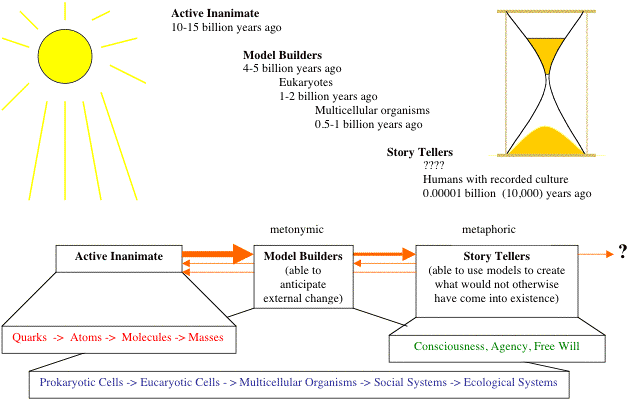Serendip is an independent site partnering with faculty at multiple colleges and universities around the world. Happy exploring!
EvoLit 2011: Beyond biological evolution and bipartite brains to literature
An evolving story

The limits of safeguards and human foresight - NYTimes 13 March 2011 (see also earlier Continuity and Catastrophe)
"The sobering fact is that megadisasters like the Japanese earthquake can overcome the best efforts of our species to protect against them. No matter how high the levee or how flexible the foundation, disaster experts say, nature bats last."
To err is human, and maybe psychologically healthy, NYTimes, 12 March 2011
"There is nothing wrong with being perfectionist, unless it starts to ruin your life."
I intuit, therefore I am - NY Times Book Review, 13 March 2011
"The main idea is that there are two levels of the mind, one unconscious and the other conscious, and that the first is much more important than the second in determining what we do .... Brooks is right to insist that emotional ties, social interaction and the communal transmission of norms are essential in forming individuals for a decent life, and that habit, perception and instinct form a large part of the individual character. But there is moral and intellectual laziness in his sentimental devaluation of conscious reasoning, which is what we have to rely on when our emotions or our inherited norms give unclear or poorly grounded instructions.
From "end of history" author, a look at the beginning and the middle
"Dr. Fukuyama, a political scientist, is concerned mostly with the cultural, not biological, aspects of human society. But he explicitly assumes that human social nature is universal and is built around certain evolved behaviors ... Dr. Melzer praised Dr. Fukuyama’s view that societies develop politically in several different ways, followed by selection of the more successful, rather than marching along a single road to political development. “It’s the kind of theory situated between the hyper-theory of Marx or Hegel and the thick description that certain anthropologists and historians aim at,” he said. Georg Sorensen, a political scientist at the University of Aarhus in Denmark, also called the book a magnum opus, saying that it provides “a new foundation for understanding political development.” It is neither Eurocentric nor monocausal, but provides a complex, multifactor explanation of political development, Dr. Sorensen said. “In terms of discussing political order this will be a new classic,” he said."
a world (for humans) full of BOTH "hope and possibility" AND "suffering" .... and the ability to decide at any given time what things are ....


